OCF Strategic Plan Check-in
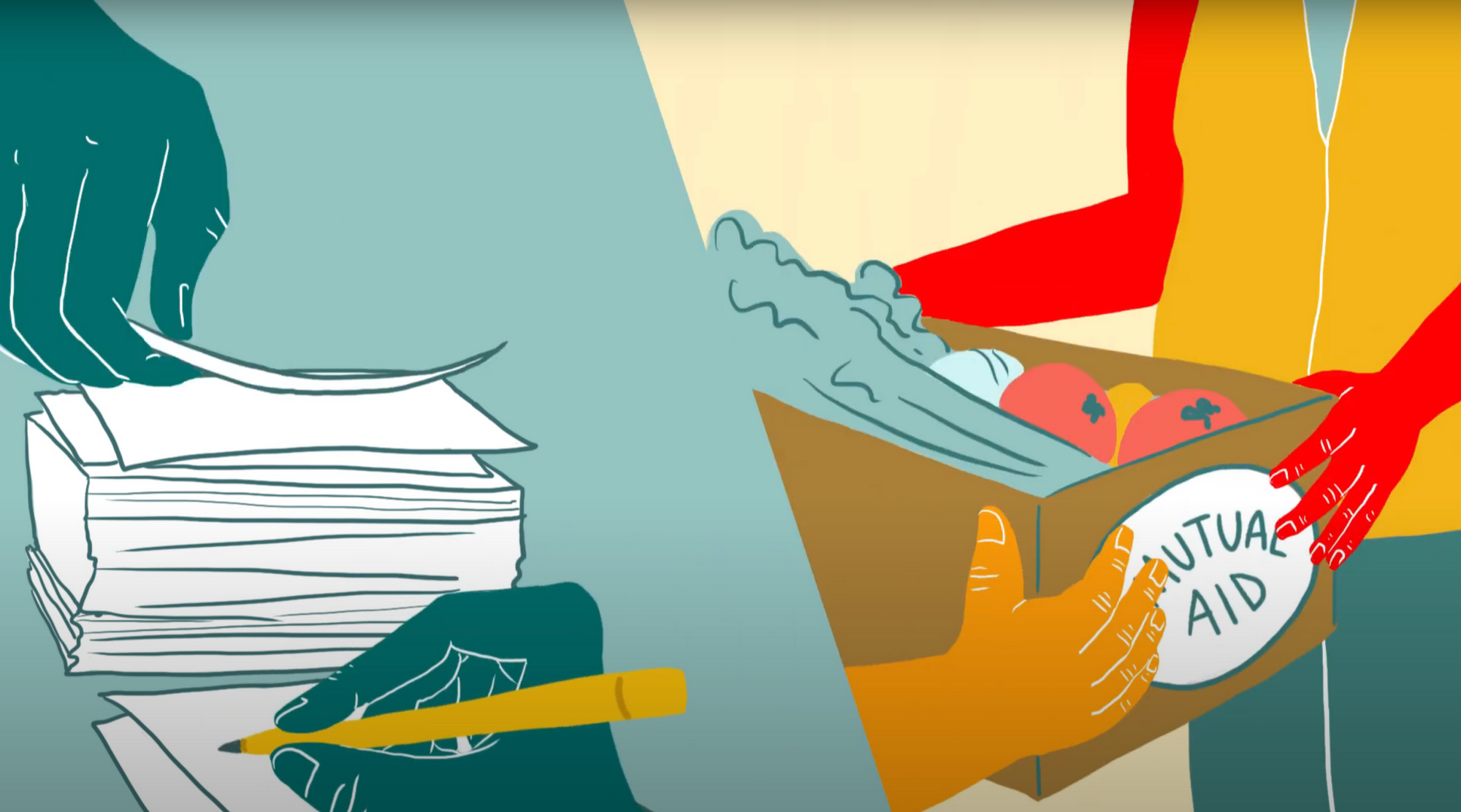
Six months later, here's what we've achieved and learned.
After clarifying our mission & values and growing our team, Open Collective Foundation committed to a strategy based on solidarity as our guiding principle, and published a strategic plan. Now, we're excited to share this implementation update and tune-up to our priorities.
As always, we seek to be transparent and welcome feedback from our community. Share your thoughts in the #ocf channel on our discord, book a call, or email us.
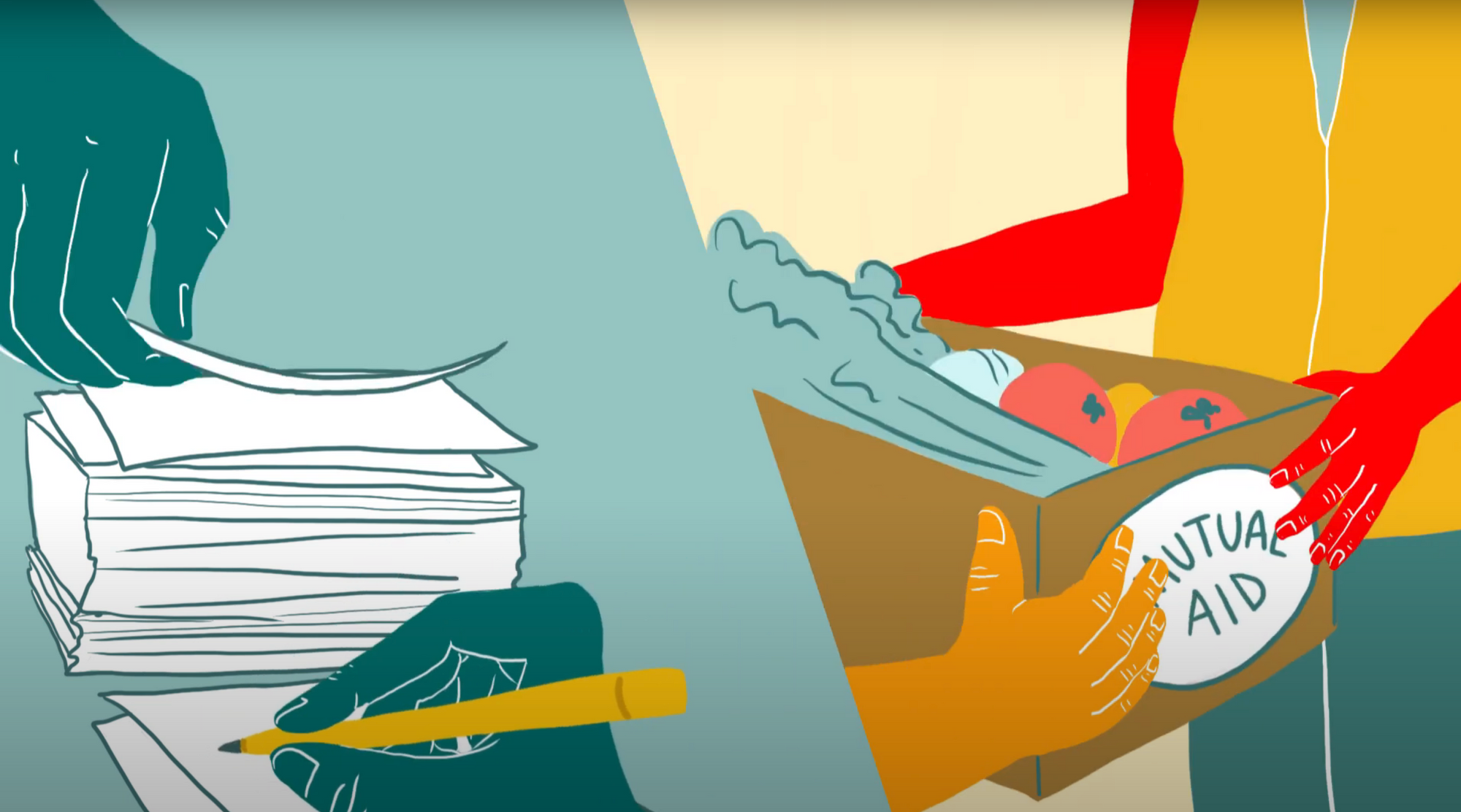
Illustrations by Kayce Bayer, from the What is OCF? video
Quick Overview
New projects
Major: participatory governance and conflict resolution
Minor: Bail/strike funds, international and political activities policies
Continuing priorities
Major: External comms & marketing, solidarity school, seeking grants, tech platform development, internal comms & community building
Minor: Regional organizers, initiative grantmaking, board governance
Plus, a whole list of completed items, and a couple we decided to remove to the back burner.
Read on for all the details...
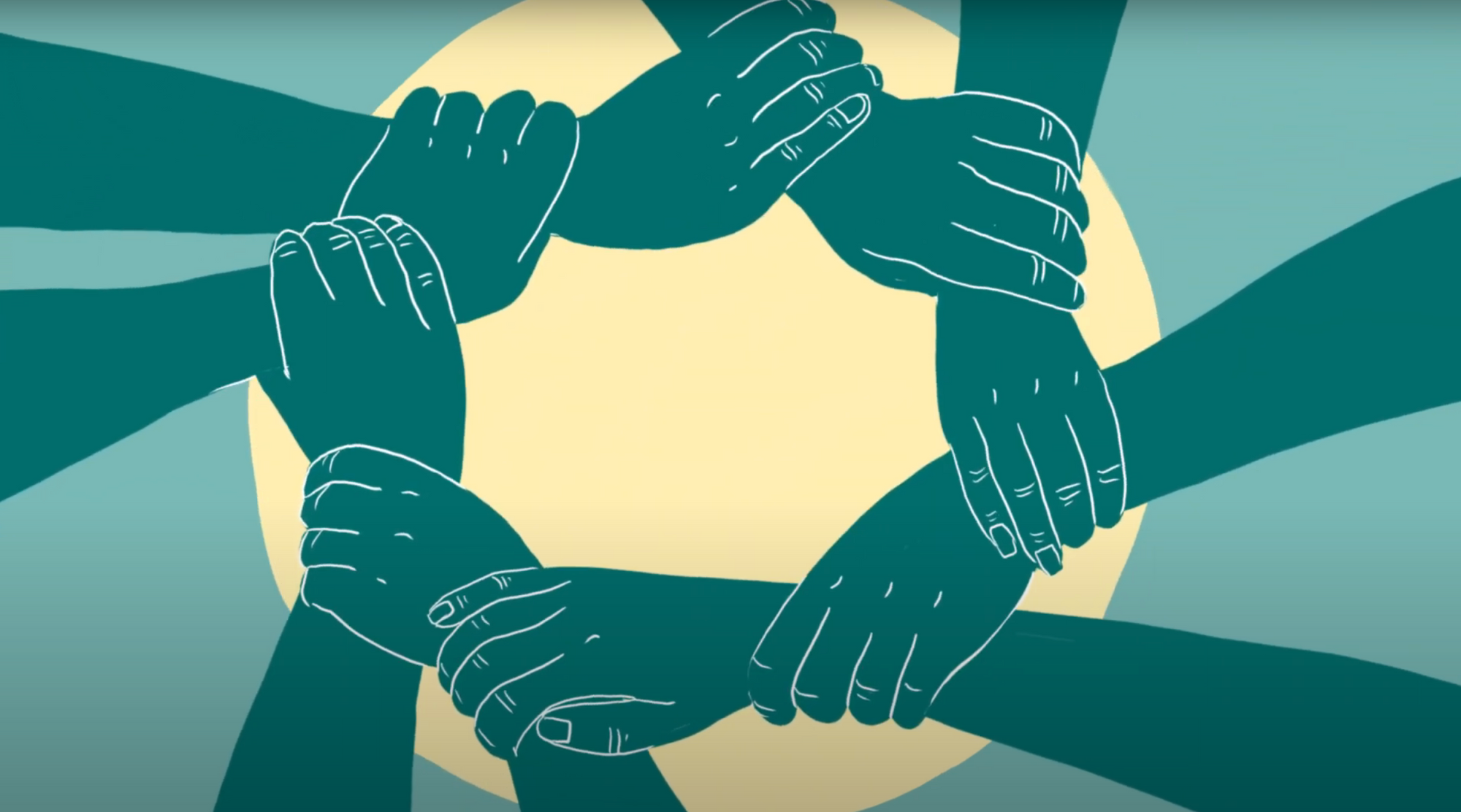
➕ Added
New and exciting stuff first!
Participatory governance
Given our mission of solidarity and the very nature of OCF, community participation in governance is essential to our evolution. We've been working hard to get foundational pieces in place—team, processes, policies, board governance—and now we're ready to build toward deeper engagement and power sharing.
Participatory governance could look like many things...
- Thoughtful consultation processes and feedback channels, like community forums and personal conversations, to understand what's important to our initiatives.
- Participatory budgeting, where the community determines where resources flow and what they'd like to see happen.
- A rotating board seat elected by initiatives, to explicitly represent their voices in governance decisions.
- Running a participatory process next time we do a strategy refresh like this, including a wider circle of contributors.
- Other ideas emerging from stakeholders about how they want to be involved.
OCF stands to gain so much from authentic input by our diverse initiatives into our governance and direction. To do this well, we'll need to invest in facilitation and process design to ensure that time devoted by our busy initiatives is worthwhile, and to strike the right balance between consultation and agility. We'll need good systems for transparency, accountability, and communication.
Open Collective Inc is heading for an Exit to Community, meaning the platform will be owned and governed by its users and stakeholders. OCF can start building capacities for that future now, with our community.
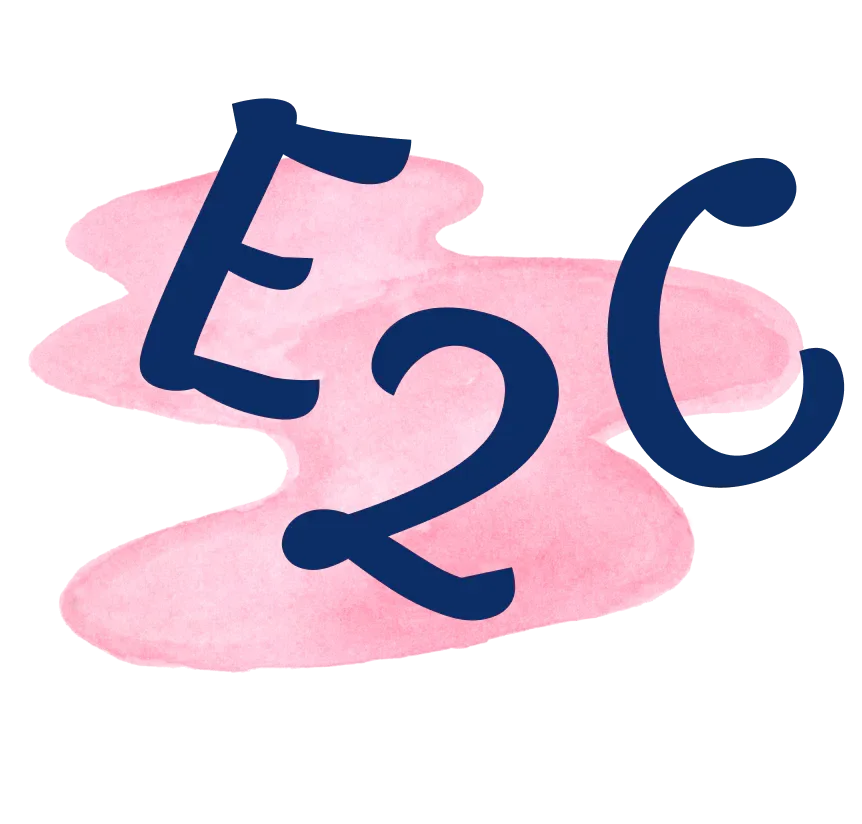
OCF's ED Alanna's recent interview about capacity building for collective governance
Conflict Resolution
As fiscal sponsor, it's not OCF's role to adjudicate conflicts internal to hosted initiatives, but we seek to support our community to be healthy, resilient, and sustainable. Conflict, if not handled well, can be highly draining and destructive. It also has potential to bubble over into areas where OCF does need to get involved, like legal disputes.
We'd like to build capacity to handle conflict—or better yet, prevent conflict before it starts with strong communication, governance, and relationships—both in the OCF team and our hosted initiatives. This could take the form of training workshops, guidelines and reference materials, access to third party mediation, or other approaches. We will seek feedback in this area from our community about their needs.
Bail/Strike Funds
We seek areas not well served by current fundraising and fiscal sponsorship options. Bail and strike funds are on our radar because we can have positive impact by radically reducing the costs of pooling money and setting up minimal organizational structures. We're early in our information gathering on these topics, so for now we're just exploring, learning, and seeking expertise in the community.
International & Political Activity Policies
While we don't intend to make international groups or political lobbying a big focus for OCF, we've identified a need for clearer policies in these areas.
OCF's mission is explicitly focused on the US, and that's not changing. However, there are times when we can support initiatives that have international components, and we regularly get asked to do so. We need more clarity on when such exceptions can be made.
Sometimes people think 501(c)(3)s can't be political due to IRS restrictions on lobbying, but the reality more nuanced. We want to illuminate where the lines are, so we can empower our initiatives as political actors to the extent we are able, and ensure compliance with regulations.

▶ Continued
Projects carried over from the last round of planning and still going strong.
External Comms & Marketing
Marketing and comms outreach was identified as high priority area in our last round of planning, because we can better serve the solidarity economy movement and our impact mission by reaching more communities. We also seek to amplify the work of all our initiatives by building channels and audiences for their stories.
We've made a lot of progress already, including being featured in a TV show on PBS, creating an animated explainer video (by Kayce Bayer from our mutual aid network), starting the Artist-Organizer Fellows program, building up our social media presence, developing communications strategy and systems, and hiring more core staff members with skills in this area.
We will continue momentum in this space. Coming up soon: a new website, improved documentation, and lots of multimedia content.
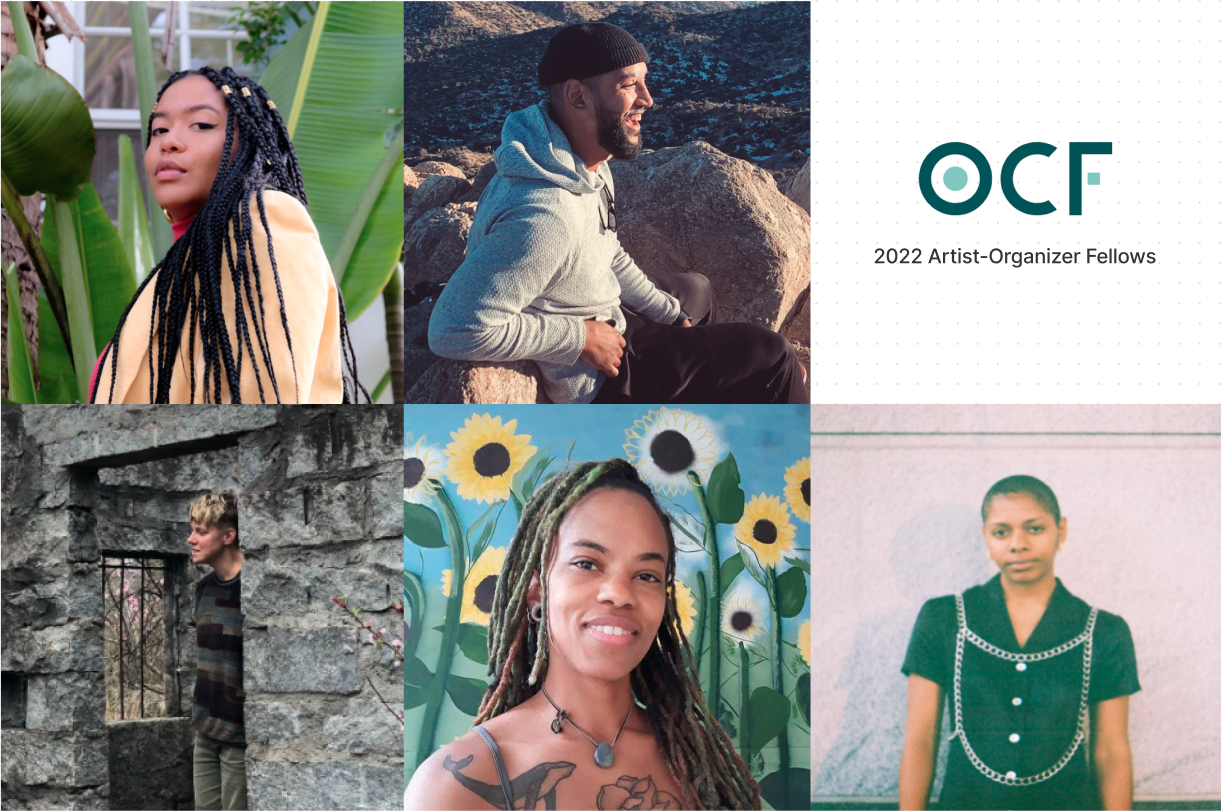
Solidarity School
Solidarity School was a high priority in our last round of planning, and enthusiasm remains strong. It's multi-faceted, touching education, capacity-building, and peer-learning. This can be a lens through which we help our existing initiatives thrive, reach new initiatives, deepen partnerships, and contribute to the wider solidarity economy movement.
We're still in planning and experimentation mode, developing programming and content ourselves, looking into partnering with awesome organizations already delivering aligned educational programs, and connecting up the rich teaching and learning already happening within hosted initiatives. Solidarity School could look like evergreen content, facilitated workshops, cohort-based experiences, or any number of other formats.
We've made a start by offering quarterly Solidarity Economy 101 workshops and legal clinics in partnership with the Sustainable Economies Law Center. Expect a lot more in the coming months!
Seek Grants
Seeking grants breaks down into multiple categories: core support funding for OCF itself, helping hosted initiatives get grants, and funding for specific initiatives coordinated by OCF that further our impact mission.
We've seen a lot of success in the latter, such as Study-into-Action, SustainOSS, and Digital Infrastructure. These programs have been awesome at achieving real-world impact in their respective focus areas. We're very happy to be a bridge between the solidarity economy and major funders, contributing both fiscal sponsorship and program coordination capacity, and we expect further growth in this area.
Lots of our hosted initiatives are amazing at getting grants, but they've really had to drive these efforts themselves, with OCF playing a more passive role as fiscal sponsor. We want to more proactively encourage and enable hosted initiatives to seek and win grants, through support with grant-writing and fundraising strategy.
We also see potential in seeking grant funding for OCF itself. Currently, we are 99% funded through fiscal hosting fees, and that's amazing, but we have some big aspirations to scale up programs, improve our tech, and to go further to support hosted initiatives and solidarity movements.

Tech Platform Development
OCF has become much more proactive about gathering feedback from our community about what they need from the tech platform, and advocating for those priorities in the Open Collective development process. At the same time, the Open Collective dev/design team has greatly improved its prioritization processes to better receive such input.
OCF is now recruiting its own developers. Up to now, we've relied on our close partnership with the Open Collective dev team (which has always been extremely responsive to our requests, but has limited capacity). Thanks to new funding, we can bring in developers specifically to work on what the OCF community needs. They'll be integrated into both the OCF team and the Open Collective engineering/design team, able to translate between the two on a deeper level than ever before.
We will also facilitate more participatory processes, user testing, and and rich feedback gathering, to get inspired by the great ideas that can emerge from our diverse users. We want to dream together about software, and put more power to influence its evolution into the community's hands. Someday in the not too distant future, OCF stakeholders will be co-governing the Open Collective platform—now is the time to start building those capacities.
Internal Comms & Community Building
We have been focusing on a foundational area: connections between OCF and hosted initiatives. We need to be in close touch, to benefit from the wisdom and creativity of our initiatives, build relationships that support trust and resilience, and develop our capacity through shared learning and collaboration.
We have achieved a huge amount of progress in this space, including monthly community forums, better systems for both automated and personalized email communications, countless onboarding calls, topic-based workshops, much better data analysis, and improved comms channels (like Slack and social media). We are going to keep up momentum in this space, such as developing an offers & needs process, where initiatives can give and receive help and expertise from each other.
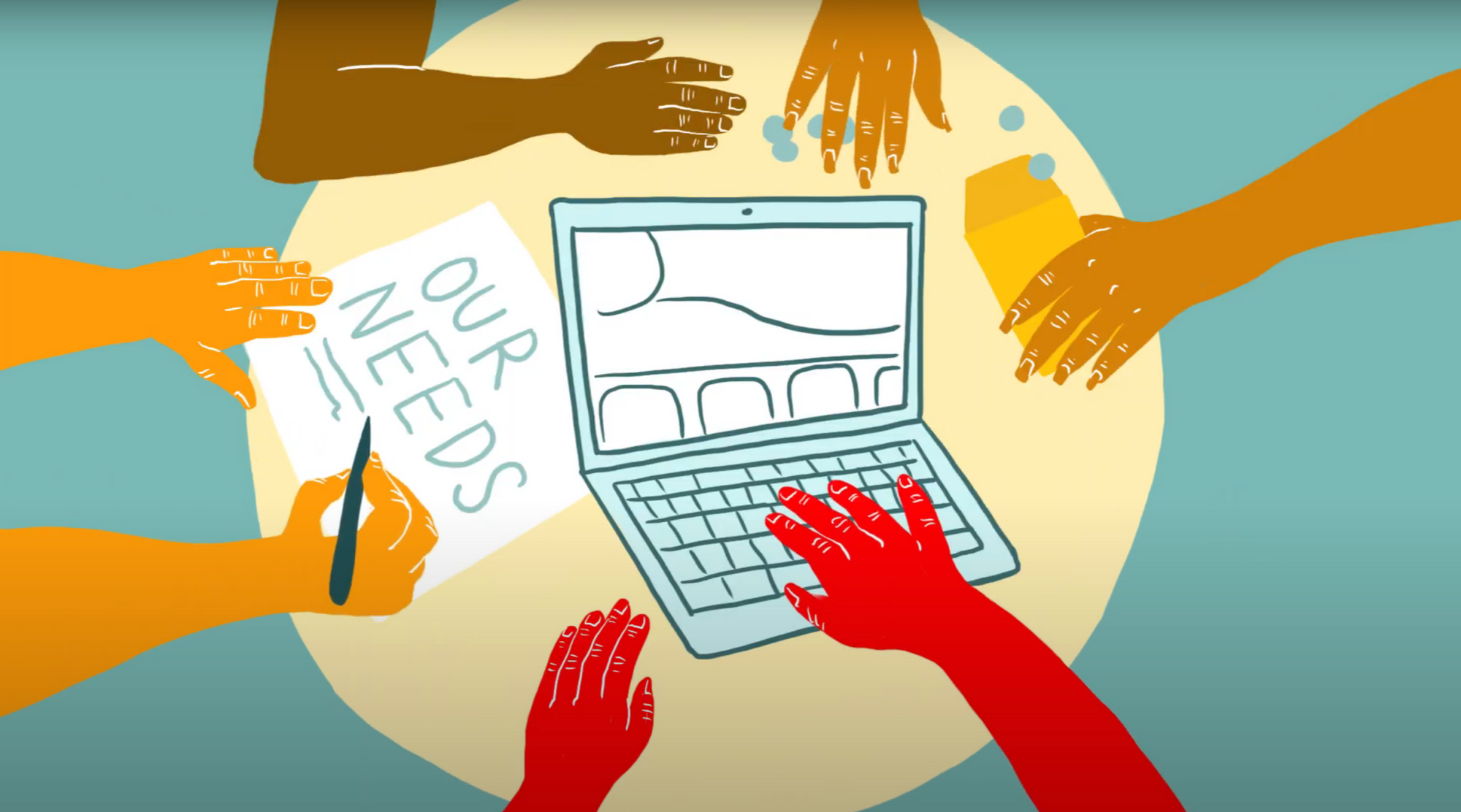
Support Regional Organizers
So far, OCF has mostly grown by spreading through specific subcultures and movements, gaining critical mass in a given network, leading to credibility and uptake among peers. We haven't yet explored how this could happen through physical co-location. We have many initiatives who share a city, but we're doing little to link them or help them feel part of a local community through OCF involvement.
Imagine local hubs in cities around the country, linking people through Solidarity School activities, engendering face to face relationships, supporting OCF-hosted initiatives, and spreading awareness through word of mouth. And, imagine supporting local champions as a group of peers, linking different regions and powering them up.
We've taken some early steps in this direction by welcoming artist-organizer fellows from different regions, and with two core staff members and many active initiatives in Chicago, we'd love to host a local event there to test the waters. We'll start imagining what more we can do in this space.
Initiative grant-making
Last year, we created a way for initiatives to give grants in their communities. While we succeeded in solving lots of sticky policy questions, and facilitated 58 grants, the process is a bit clunky and paperwork-heavy. We want to iteratively improve it based on the feedback we've received.
Board Governance
We've recently been recruiting new board members, and we're committed to a thoughtful and thorough process which requires time and attention, and we need to put energy into making sure new people have a good onboarding experience to the board. While the fundamentals of our board governance are pretty solid, we need to mature governance policies, like term limits and committees, and work on implementation of more participatory governance, such as a rotating board seat selected by initiatives.

➖ Removed
Things going on the back burner in favor of other priorities. Staying focused strategically means setting aside some ideas to give more attention to what's important now.
Giving Circles
Giving Circles are a style of philanthropy aligned with OCF's approach, but there are potential regulatory concerns, and a lot of research to be done about the needs and existing solutions—it's outside our current strategic focus.
Lending
Mainstream credit systems marginalize a lot of people, and given the rich financial data we collect already, we could bring a trust and transparency approach to loans. But doing so is too far outside OCF's current scope, and we'd rather support existing values-aligned organizations in the lending space to activate on Open Collective through partnership.
✔️ Completed
Checking things off the list that are now part of everyday operations.
- Virtual cards - Like a credit or debit card you can use online, linked to your Collective balance.
- Employment - Employment options for initiatives, with benefits including health insurance and 401k.
- Liability insurance - cost-effective access for initiatives, through addendums to OCF's core policies.
- Study-into-Action - The first phase is complete, and now this program has grown into an autonomous hosted initiative.
- Cryptocurrency donations - We’re set up to receive crypto and have processed our first few transactions.
- Stock donations - We can receive stock donations and have processed a few. We'd like to do a case study of an initiative who has received stock donations to show how beneficial it can be.
- Industry & Movement Groups - We have joined National Network of Fiscal Sponsors, Social Impact Commons, and COVID Conversations, and we're in talks with New Economy Coalition and Democracy Beyond Elections.
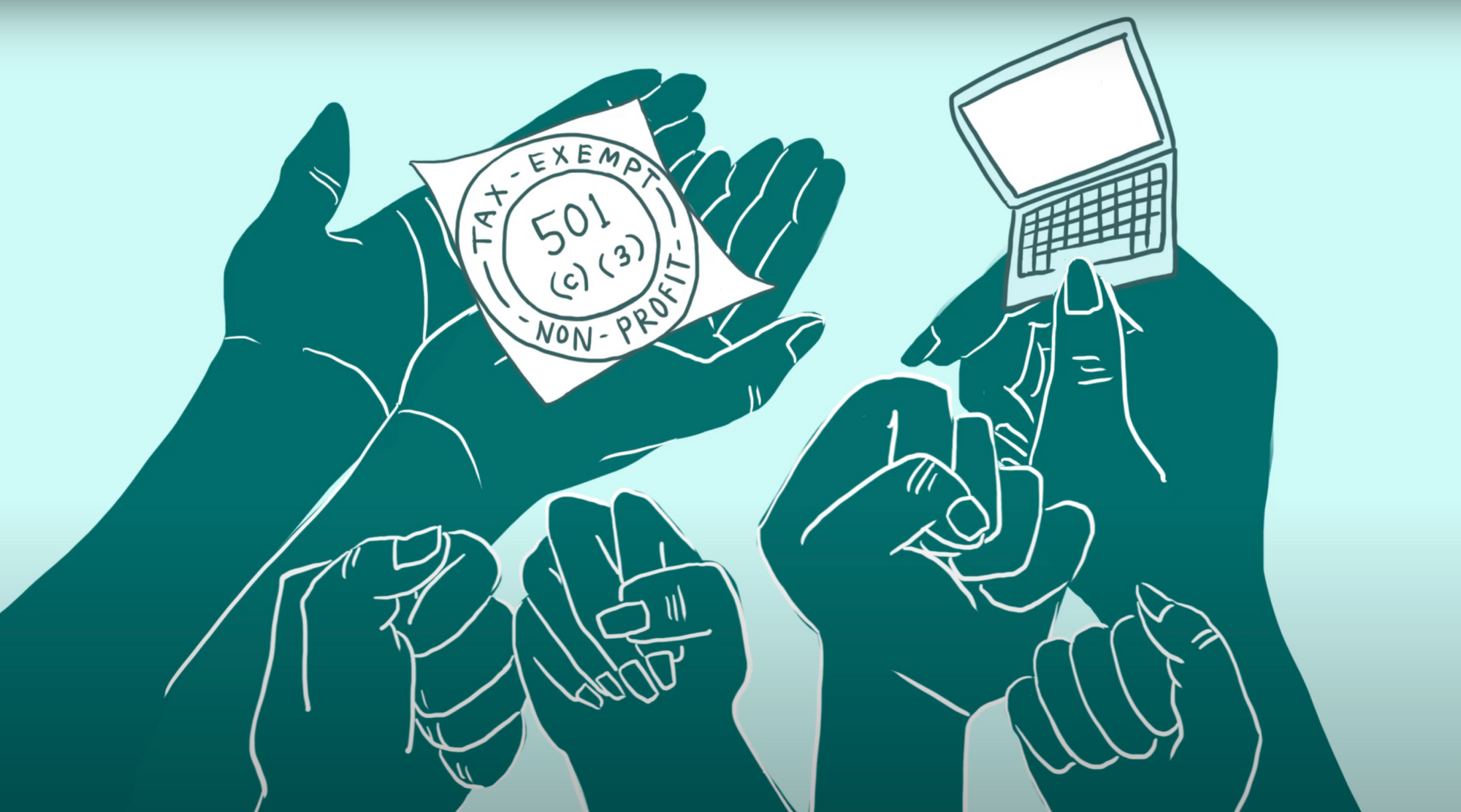
To stay accountable to all of the above, we track progress against the strategic plan at each board meeting, and OCF staff refer to it when prioritizing tasks as a team. A strategic plan has to be alive to stay relevant, so we'll keep up a regular rhythm of check-ins and reporting.
What do you think? Share your feedback in the discord channel, book a call, or email us. We'd love to hear from you!


